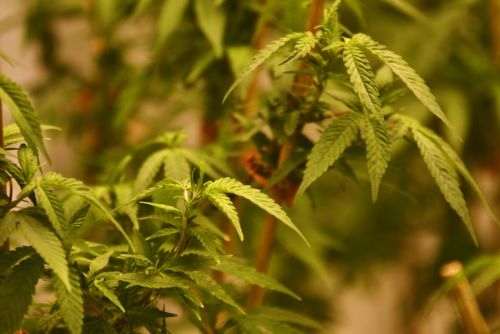Brand protection is crucial for every type of company. You might be wondering whether you can file for trademark protection if the goods connected with your brand are legal in your state — but not at the federal level. As more states legalize recreational marijuana, this is the challenge that is often faced by cannabis businesses. However, businesses may still have options available to them to safeguard their cannabis brands in an increasingly competitive market.
Is Federal Trademark Protection Available to Cannabis Brands?
Trademark registration is only permitted for goods and services that can be lawfully sold in interstate commerce. Since cannabis has not been legalized federally, federal trademark registration is generally not allowed for marijuana and cannabis products. A United States Patent and Trademark Office (USPTO) examining attorney will typically deny a trademark application outright if it is connected with goods or services that are illegal under federal law. However, there are some exceptions to note when it comes to cannabis-related products.
A trademark for any ingestible cannabis product — including food and dietary supplements — is likely to be denied federal trademark protection. But depending on the cannabis-related goods you sell, you may still be eligible to register your mark. If the application is for a product or service that complies with the Controlled Substances Act or the Food, Drug, and Cosmetic Act, the mark is more likely to be accepted. Such products may include the following:
- Topical CBD products
- Soaps and hair lotions containing CBD
- Certain cosmetics containing full spectrum hemp oils
- Certain cosmetics containing CBD
As a result of the passage of the Farm Bill as part of the Agricultural Improvement Act of 2018, the USPTO has been less strict concerning the classification of hemp-derived goods. If the CBD in your product is derived from hemp and contains less than .3% of THC, you can file for trademark registration as long as the product is not meant to be ingested.
The Ninth Circuit’s Decision Regarding Delta-8 THC
A recent decision handed down by the United States Court of Appeals for the Ninth Circuit suggests the possibility of increased legal trademark protections in the future. In AK Futures LLC v. Boyd Street Distro, LLC, the Ninth Circuit held that delta-8 tetrahydrocannabinol (THC) falls under the definition of “hemp” pursuant to the 2018 Farm Bill, making it lawful at the federal level.
Specifically, the case involved allegations concerning trademark and copyright infringement in connection with e-cigarette and vaping products that contained delta 8-THC. AK Futures, an e-cigarette and vaping product manufacturer producing products under the brand “CAKE,” sought an injunction against Boyd Street for selling counterfeit versions using the same “CAKE” trademark. While the District Court granted the injunction, Boyd Street appealed the decision, arguing that the CAKE mark was not protected by trademark law since delta-8 THC is not legal under federal law.
On appeal, the Ninth Circuit found that because the delta-8 THC products were not prohibited by federal law, the trademark can be registered with the USPTO. Notably, it also found that delta-9 THC products still cannot be afforded federal trademark protection, regardless of whether they are legal on the state level.
What Options Do Cannabis Companies Have to Protect Their Brands?
Federally registering a Trademark can be a complex matter for a cannabis brand, since there are many nuances involved. Owners of cannabis businesses should consider all viable options when it comes to protecting their brands. Critically, even if your company manufactures goods that contain cannabis, a product that is produced without a federally prohibited substance may still be eligible for protection.
Your company might also be able to register a mark for a product that does not come into contact with the actual plant. For instance, certain apparel designs or services that are not related to the sale of cannabis may be registered. Logos or slogans associated with informational websites, dispensary directories, or non-banned complementary products may also be registered with the USPTO.
Companies selling cannabis products might also be able to register their marks within the state they are doing business. Significantly, even when federal registration is not permitted, state trademark registration may be available to businesses that are selling and manufacturing products in a jurisdiction where cannabis is legal. This can be an effective method to safeguard a mark from local competitors. Although common law rights are acquired by using the mark in commerce, registering it with the state database can help to increase its protections.
Contact a Skilled Trademark Attorney to Assist With Your Cannabis Branding Efforts
Federally registering a Trademark cannabis brand can be complicated and it’s crucial to have a knowledgeable trademark attorney by your side who can protect your brand. At the Trademark Lawyer Law Firm, PLLC, our attorneys work with entrepreneurs in the cannabis industry to develop comprehensive brand protection strategies. Located in Ann Arbor, Michigan, we assist a variety of businesses across the country with a broad scope of trademark matters. With more than 6,000 trademarks under our belt, we know what it takes to register a mark with the USPTO the first time you file. Contact us today to schedule a free 15-minute consultation.





